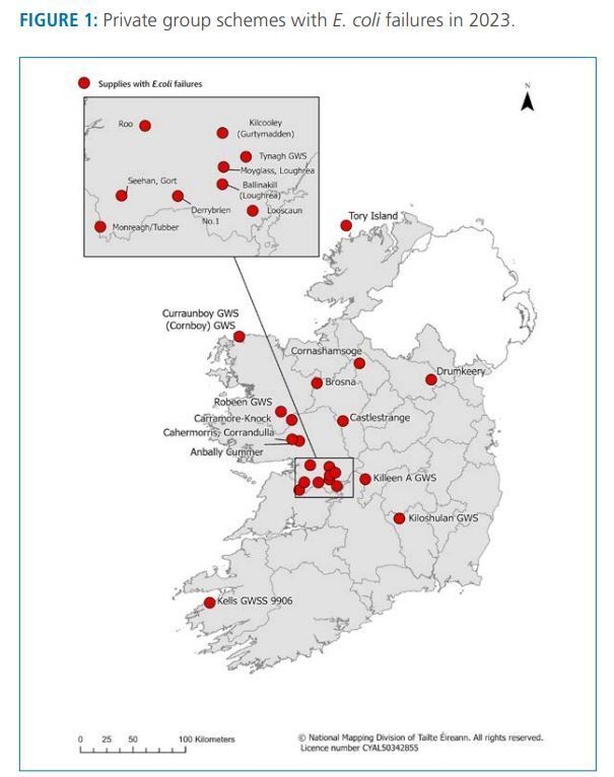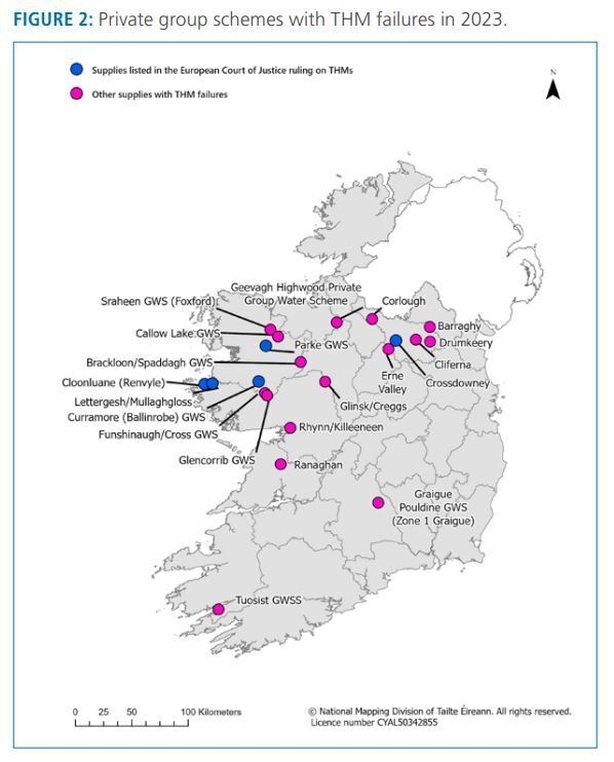One in 20 drinking water supplies, from either private group schemes or small private supplies, failed to meet E. coli standards in 2023, according to a report from the Environmental Protection Agency (EPA).
A total of 21 private water schemes failed the standard for E. coli, impacting around 4,600 people, an increase from the previous year.
A further 22,000 people were affected by schemes which failed the standard for Trihalomethanes (THMs).
Noel Byrne, Programme Manager of the EPA's Office of Environmental Enforcement, said one of the key things with drinking water is protecting the source.
Speaking to RTÉ's Morning Ireland, he said that if anything gets into the source, such as animal manure or something from a septic tank, it can lead to E. coli.
"E. coli can make you quite ill. You'll have nausea, fever, diahorrea, and if you're immunocompromised it can even be more significant," he said.
In 2023, an EU report found Ireland had failed to take measures to meet THM compliance in both public supplies and group water schemes.
Mr Byrne said that nine group water schemes were found to be non-compliant and five were still non-compliant last year, meaning not enough action had been taken in that regard.
He said that while it was "first and foremost" the responsibility of the supplier to resolve the issue, the local authority is the regulator.
EPA Director Tom Ryan said all drinking water produced in Ireland whether it comes from a public or private supply, should be of high quality.
Mr Ryan said "urgent action" is needed by suppliers and local authorities to address the failings.
We need your consent to load this rte-player contentWe use rte-player to manage extra content that can set cookies on your device and collect data about your activity. Please review their details and accept them to load the content.Manage Preferences
Read the report in full here
Unmonitored private drinking water supplies 'a potential risk to public health' - EPA
There are over 370 group water schemes supplying drinking water to 190,000 people across rural communities in Ireland today.
In addition, many commercial and public premises supply water to the public from their own drinking water well.
These are called small private supplies and can include schools, nursing homes and sports clubs.
However, only 1,665 small private supplies are registered with local authorities.

Unregistered small private supplies are not monitored by local authorities, creating a potential public health risk according to the EPA.
Mr Ryan said local authorities must take "proactive steps" to identify and register small private supplies in their areas.
"The legislation needs to be amended to make it an offence for a supplier not to be registered, in the interests of public health," he said.
The EPA report also noted that €38.5 million of available Government funding that could have been invested in improvements to private supplies between 2019 and 2023 was not used.
Noel Byrne said it is "very disappointing" to see this underspend "when there are ongoing water quality issues in group water schemes".
Mr Byrne said: "The EPA welcomes recent improvements to the application process which should make it easier for group water schemes to access funding and deliver improved drinking water quality.
"However, every effort is needed by suppliers, local authorities, and the Department to get funding to the schemes that need it most."


